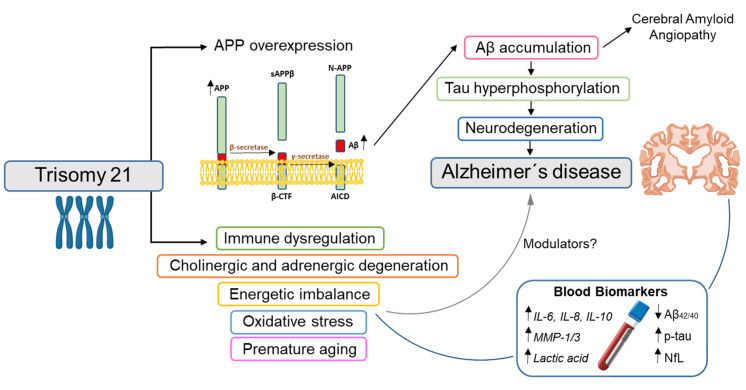Figure 2.
Schematic representation of the effects of trisomy 21 on vulnerability to Alzheimer’s disease and relation to potential blood-based biomarkers. Down syndrome (DS) is caused by partial or complete triplication of chromosome 21. The triplication of the amyloid precursor protein (APP) gene leads to overexpression of APP and consequently to overproduction of amyloid-β (Aβ) peptide. This results in an increased accumulation and deposition of Aβ (A) in the brain, that may promote tau hyperphosphorylation (T) and neurodegeneration (N). This ultimately translates in a higher risk to develop Alzheimer’s disease (AD). The triplication of other genes on chromosome 21, aside from APP, is associated with vulnerability to other pathologies, but findings suggest they could also play a role in AD. Colors of the box of affected mechanisms are linked to biomarkers in Table 2. To predict and diagnose AD in DS patients, blood biomarkersused in sAD (Aβ, p-tau and NfL) and biomarkers independent of A/T/N processes (italics) have been studied.

